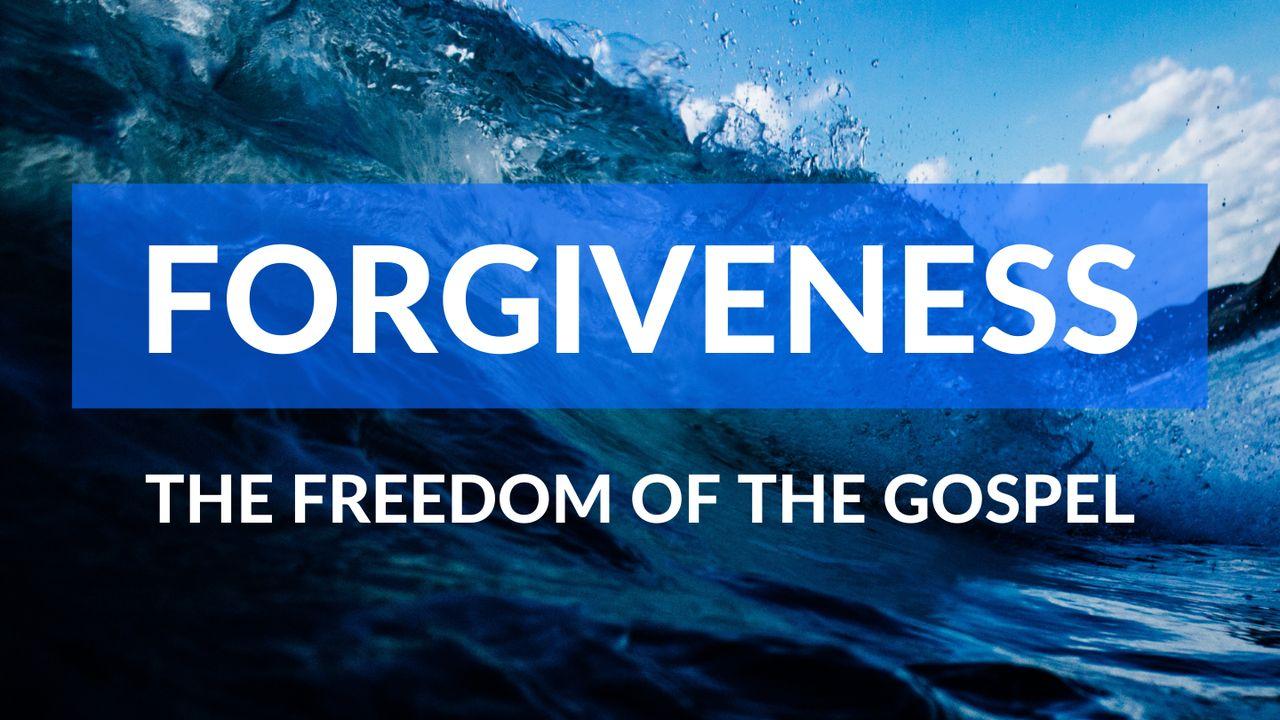Forgiveness: The Freedom of the GospelMuestra

 Forgiveness is at the Core of the Gospel
Forgiveness is at the Core of the Gospel
Yesterday we discovered the uncomfortable truth that God disciplines unforgiveness by withholding His protection from us when we don’t forgive. The big question is “Why?” The answer is because forgiveness is at the core of the Gospel.
If you cut the Gospel anywhere, it bleeds forgiveness.
In one of the last conversations Jesus had with his disciples after His resurrection (Luke 24:46-49), He summarized the Good News for them: “Thus it is written, that Christ would suffer and rise again from the dead on the third day, so that repentance for forgiveness of sins would be proclaimed in His name to all the nations, beginning in Jerusalem…” The “so that” is a purpose clause indicating that Jesus’ death and resurrection were not the main reason that He came to earth, but rather they were the necessary means to the greater plan. To Jesus, the message of forgiveness is the intended outcome of the incarnation. He endured the Cross and conquered the grave in order to proclaim forgiveness to the world. This is why we can confidently say forgiveness is at the core of the Gospel message.
The Gospel is simply this: In the Garden of Eden, when Adam and Eve sinned, not only did it cost man a lot, but it cost God a lot. It cost us the relationship God designed for us to have with Him and it cost God the reflection of His Glory we were created to be on the earth. And God said, "I want my Glory seen and I want my children back! But there's a problem. There's a sin debt that is more than 150,000 years’ worth of wages. There's zero possibility they'll ever be able to make it right. Jesus, is there something you're willing to do about it?"
"Yes Father.” Jesus said. “I’ve got more than enough righteousness in my account. I can cover this."
Jesus leaves heaven and comes to the planet, lives thirty-three and a third years perfectly, and then on the Cross, stretched out his arms and said, "It is finished." What was finished? The payment for the sin debt of the world. 1 John 2:2 says, "He, (Jesus,) is the satisfaction for our sins, but not for ours only, but also the sins of the whole world." People do not go to hell because they've not been forgiven. They go to hell because they've not repented to receive the benefit of forgiveness, because every sin ever committed by anybody, anywhere on the planet, at any point in time in history was paid for by Jesus on the Cross. It's finished. There's nothing left to pay.
Three days later, when God the Father, by the power of the Spirit, raised Jesus from the dead, the Father said, "I agree. I receive the blood of my son as payment in full for the sins of the world against me."
Therefore, when we say “God may forgive, but I won't,” we are declaring, "Dear Heavenly Father, I appreciate the fact you place so high a value on the blood of your Son, that you receive it as payment in full for the sins of the world against you. But what they did to me and the people I love...I need something more than that. The blood of your Son is not enough to satisfy me." And what father would easily handle the crowning achievement of his son being devalued by the very ones he achieved it for? We say it this way: The blood of Jesus covers all sins, including the ones that wound me, and you, and us.
Tomorrow you will meet a modern day Stephen who understands that forgiveness is a transactional decision that we are to make quickly.
Acerca de este Plan

Any way you cut the Gospel, it bleeds forgiveness. Yet, even the most seasoned Christian can struggle to extend forgiveness to those that have deeply wounded them. Dr. Bruce Hebel invites you on a seven-day journey to discover what God has to say about experiencing the freedom of the Gospel through forgiveness and show you how to apply the blood of Jesus as payment in full for every wound.
More
Planes relacionados

7 Días Para Experimentar El Poder Transformador De Dios.

Cuatro Metas Para El Nuevo Año - Un Mensaje De Motivación Desde La Prisión De Roma

7 Días En Busca De Dios.

La Gracia Del Perdón

Huellas en El Polvo: Reflexiones Para Peregrinos

El Amor de Pareja Según Dios

Semana Santa con Marcos

Nuevo Comienzo. 8 Pasos Para Ser Más Disciplinado.

La Semana Que Cambió La Historia
